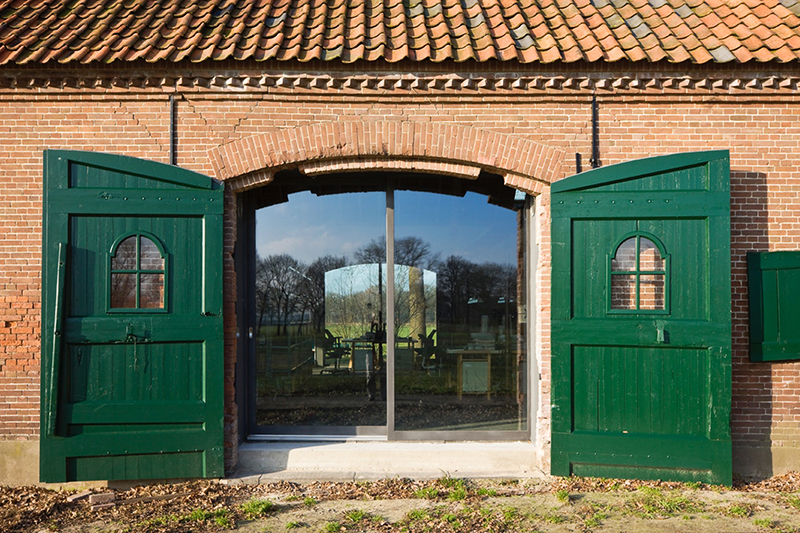Бурното развитие на отраслите налага адекватни промени от страна на управленческите модели в строителния бранш. Отворените международни пазари за стоки и работна ръка променят генерално средата в която се развива бизнеса. В тази връзка, освен традиционните управленчески качества, свързани пряко със строителните дейности, все по-голямо внимание започва да се обръща на личностните такива. На преден план при съставянето и реализирането на целите на управленческите структури застават балансираната работа между участниците в инвестиционния процес, мотивационни форми за увеличаване на производителността, бързо променяща се кониоктура, динамичната конкуренция, сложните организационни системи на фирмено ниво.
Атрибути на строителния мениджмънт
Основните атрибути за постигане на успешен бизнес модел могат да се групират в три групи:
- коректност;
- способност за комуникация между участниците на високо ниво;
- ясно виждане за моментното състояние на фирмата и бранша на чиято база се задава добър бизнес план
Коректността се отнася за всички браншове. В строителството тя е най-търсена между лидерите в процеса и се счита за голяма трудност, по която трябва да бъде работено в бъдеще.
Комуникацията между участниците винаги е играла ключова роля за успешното реализране на проекта. При наличие на висока конкуренция, е грешно да се разчита единствено на рекламния бизнес и технологиите за комуникация. Личният контакт остава основно средство за изграждане на доверие между страните. Подценяването на този елемент води до силно негативни последици.
Последният елемент е слабо застъпен в научната литература в строителството. Въпреки своята фундаменталност, той бива често пренебрегван и в практиката. Управленческия персонал на фирмите има свойството често да се фокусира и пригаждат към нуждите на конкретния клиент. Следващите този принцип имат по-голям шанс за дългосрочен успех.
Лицето на стоирелния мениджънт се изменя и като че ли леко изостава на фона на динамичната обстановка в строителството.
Традиционни негови качества губят или намаляват своето значение за сметка на други. Като част от основните проблеми, които следва да се решат, могат да се посочат:
- през последните 50 години, в световен мащаб, се наблюдава навлизането на нови фигури в управлението на строителния процес. Често техните позиции се явяват противопоставящи се. За успешното завършване на проекта, строителния мениджър може да реши ситуацията чрез много похвати, като например: чрез директна конфронтация, балансирано решение или като посредник между участниците в спора. Един добър строителен мениджър би следвало да заобикаля първичната конфронтация и да насочва участниците към едно балансираното решение. Нуждата от добри комуникативни умения в случая е ключова.
- фокуса на дейностите извършвани от строителния мениджър постепенно се измества. В миналото неговите основни отговорности са били насочени към краткосточното и дългосрочно планиране на обекта и неговите нужди. В последствие превес започват да вземат чисто комуникативните качества на индивида, възможността му да се справя с различни по характер и интереси инвеститори, архитекти, инженери, финансови и държавни институции и т.н. Все по-търсени са лингвистичната, междуличностната и вътреличностната интелигентност, като основни качества на ръководителите проекти.
- липсата на колаборация между частинят бизнес и висшите учебни заведения. Подценяването на възможностите и от двете страни, липсата на доверие между тях, слабото финансиране на университетите, тромавата учебна система, ниските начални заплати са част от предпоставките за липса на синхрон между подготовката на бъдещите строителни инженери и търсените качества на пазара на труда. Епизодичните опити да се преоодолее тази бариера не са достатъчни. Трябва да се създаде цялостна и дългосрочна концепция целяща актуализиране на учебната програма и методиките за нейното преподаване. Оценката на тази концепция би следвало да се базира на ясни и измерими критерии.
Въпреки силно променящата се обстановка в строителния бранш, не трябва да се смята, че всички традиционни качества на ръководния персонал са отживелица и нямат място в модерния облик на професията. По-скоро е редно да се говори за едно изменяне на фокуса и допълването с бъдещи умения и компетенции. Част от налагащите се промени са свързани с:
- намаляване важността за ясната представа за възможностите и апетитите на конкурентните фирми в бранша;
- липса на възможност за развитие на кадри от начално ниво до най-високи позиции във фирмата. Средната продължителност на трудови правоотношения в строителството е около 1,5г;
- невъзможност за тясна специализация на фирмите и строителните мениджъри. Все по-често се търсят фирми и специалисти предлагащи реализацията на строителното начинание от фазата на проучвателните дейности до пълно завършване на инвестиционния проект;
- при малките фирми и обекти се наблюдава влагането на повече усилия с цел повишаване на качеството на крайния продукт, стабилни партньорски взаимоотношения между фирми извършващи различни видове дейности с идеята за целостно изпълнение на комплексни проекти;
- освен необходимите широки познания, се добавя изискването за влизане в детайли относно материали, технологии, приложимост, целесъобразност;
- вникване в „голямата картинка” обединяваща проект, участниците в него и възможни пречки при реализацията на всеки етап;
- все по-малко са „задължителните” знания, умения и опит на ръководителите, за сметка на балансираните им качества – гаранция за успешен финал.
Какви са световните тенденции в бранша?
Мениджърските фирми в световен мащаб непрекъснато увеличават изискванията си към ръководителите на проекти. Осъзнавайки нуждата от знания не само в дълбочина на проблемите, но и в широк спектър от видове строителни дейности, те целенасочено избират специалисти с различни интереси. От особена важност е вникването в профила на отделния кадър, правилното му позициониране във фирмата и определяне на посока в кариерното му развитие.
Кадрите, които най-добре се вписват в променящата се обстановка, имат съществени предимства пред конкурентите си на пазара. Поради недостатъчният им брой, съществува сериозна борба с цел привличането, задържането и тяхното развитие. Бизнесът в България изостава от тези тенденции, което води до отлив на качествени специалисти към работа извън страната или други, по-добре финансово обезпечени браншове.
Какво може/трябва да се направи на ниво фирма?
Поставянето на дългосрочни цели във всяка една строителна фирма трябва да кореспондира с нейното представяне пред клиента. В тази връзка, лицата на фирмата, а именно нейният персонал, следва да са запознати със стратегията и да споделят възгледите на ръководството. Въпреки многобройните ползи от един такъв подход, той не винаги намира приложение, най-вече поради нуждата от адекватна, индивидуална фирмена система за подбор на персонала, отдаденост към всеки един служител, неговото разбиране, развитие и приобщаване към общата цел.
Author: Dr. Eng. Teodor Todorov







